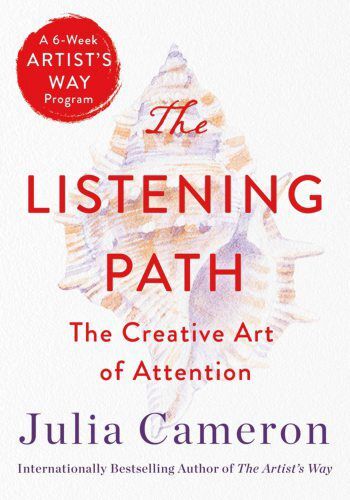For more than 25 years, millions of people have awakened and grabbed not their phones, but paper, filling stream-of-consciousness “Morning Pages” — a creativity-boosting ritual first prescribed in author Julia Cameron’s breakthrough book, “The Artist’s Way.” (The book has sold more than 5 million copies.)
Now, Cameron has published “The Listening Path,” which lays out a six-week method of creative and personal transformation through better listening to not just others, but the silence around you.
Question: What inspired “The Listening Path”? Was the book in the works for a long time, was it inspired by recent events, or one event in particular?
Answer: “The Listening Path” was a long time in the making. I moved from busy and noisy New York to calm and quiet Santa Fe, N.M. The change was abrupt and healing. In the quiet of my new home I began thinking about sound. When I went to lunch with my publisher Joel Fotinos he asked me what I was thinking about and I said, “listening.” “Oh,” he said, “I’d love to hear more on that.” So his curiosity, and my experience, combined to be the catalyst for the book.
Question: Why is this a good time for a book like “The Listening Path”?
Answer: I think that our enforced solitude has caused many of us to be more introspective. “The Listening Path” provides a channel for our often chaotic energies to quiet and deepen. Now is a good time for a book on listening, as we are all listening — like it or not — to our tumultuous thoughts.
Question: Do you think that people are more open to creative and personal transformation after their experiences in lockdown?
Answer: Yes. I believe that lockdown has shown us a need to be in touch and comfortable with our authentic selves. It’s “now or never,” we might catch ourselves thinking, as we turn to a spiritual toolkit.
Question: How has the pandemic impacted people’s creativity and sense of self?
Answer: Our identity has come to be seen as something separate and distinct from our previous markers. We no longer feel it is our job, or our material possessions, which define us. Instead, we are led through the long hours of the pandemic to seek spiritual grounding. I believe this is good, important and the silver lining of difficult times.
Question: What makes it difficult for people to really listen? Does it have anything to do with social media and the ways in which our attention is pulled in so many directions?
Answer: People find it difficult to listen because they are overwhelmed by the input coming to us from all directions — social media, the television, the constant barrage of news. All of these things make it difficult for people to focus on the root of all listening: The still, small voice that wells up from within.
Question: Do you see “The Listening Path” as a workbook for re-entry, when we are all able to gather again? Or is it something we can use now?
Answer: I believe “The Listening Path” is needed in our current times and will be needed, too, in our future.
Question: What are three things that we can do, right now, to be better listeners?
Answer: The first tool I would suggest, as I always suggest, is the practice of Morning Pages: Three pages of longhand, stream-of-consciousness writing, done “first things first.” The pages quiet our chaotic thoughts and allow us to be authentically present.
The second tool is focusing on the sounds in our environment, perhaps keeping a weekly log of the sounds, pleasant and unpleasant, that we daily encounter. This allows us to tune in, rather than tune out, on our soundscape.
The third tool involves listening to others without interruption; allowing our intimates to fully finish their thoughts, which often surprise us.
These three simple tools awaken our inner listener, allowing us to be more present and fully engaged.
Question: What are some of the common experiences people have shared with you about “The Artist’s Way”? Are there common threads in the way the book, and Morning Pages, have impacted their lives?
Answer: The sentence I most often hear is, “Julia, your book changed my life.” I tell them, “You changed your life. I offered you tools, but you used them.” Practitioners report a heightened spiritual awareness: “My perception of the world shifted from hostile and threatening to encouraging and benevolent.”
Many people speak of what might be called “God consciousness.” I don’t think it matters what you name it; the tools of “The Artist’s Way” engender a spiritual awakening. As the book title says, “The Artist’s Way” is a spiritual path to higher creativity. I have found creativity and spirituality to be intertwined. If you work on your creativity, your spirituality increases; if you work on your spirituality, your creativity increases. People sometimes tell me, “Julia, I fell in love with myself.”
Nicole Brodeur writes for the Seattle Times.


